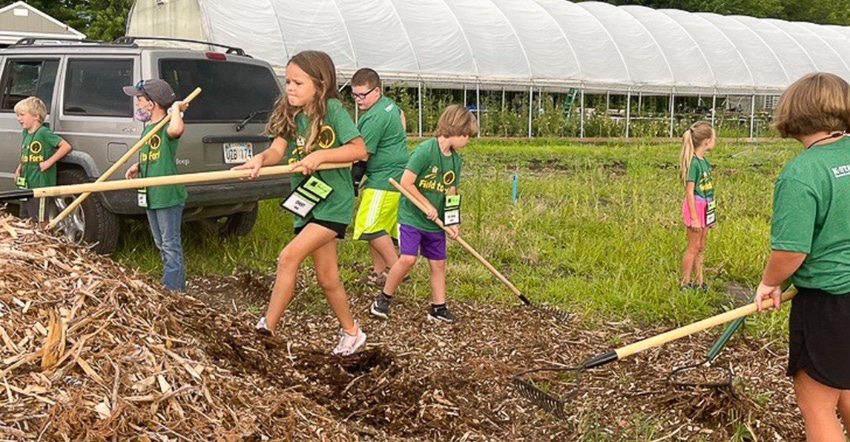August 5, 2022

As America’s communities grow more urban, and the number of family farms continues to shrink, Kaitlyn Peine has a pretty good idea that an increasing number of youth today are not aware of where their food is grown.
“Most families are now two to three generations removed from a family farm,” said Peine, a community health and wellness agent with Kansas State University Research and Extension’s office in Douglas County.
Peine recently organized an effort to help kids learn about and appreciate food production. The three-day program, called Field to Fork, allowed 30 kids ages 6 to 11 an opportunity to see food being grown on a farm — and even get dirty themselves.
According to Peine, Field to Fork included activities on soil conservation, food production, botany, animal science, food preparation and nutrition. She called it “a deep dive into learning about how their food makes its journey from field to fork.”
“Not only did these kids gain a greater appreciation for how their food is produced,” Peine noted, but “they also learned about making healthier choices for their own food.”
Field trips to actual fields
The program included field trips to Lawrence-area farms, including the Giving Garden, Kalb Farms and South Baldwin Farms.
“[Field to Fork] allowed kids to receive a hands-on experience of the way our food is grown and prepared,” said Rachel Pratt, a student intern this summer in the Douglas County office. “Working with the kids gave me the chance to experience it with them, and I loved working with them, helping them learn and learning alongside them.”
In addition to student interns, Peine said members of the Douglas County Extension staff — including experts in agriculture, horticulture, 4-H and community development — helped to present the program.
“It was really rewarding to teach part of the nutrition lesson,” said Hannah Reidy, a summer intern. “The kids were super-excited to learn and loved the snack that they prepared themselves.”
Peine said Field to Fork was funded by a grant from the Kansas Department of Education. More information on programs to benefit youth and promote community development is available at local Extension offices in Kansas.
Source: Kansas State Research and Extension is solely responsible for the information provided and is wholly owned by the source. Informa Business Media and all its subsidiaries are not responsible for any of the content contained in this information asset.
You May Also Like




